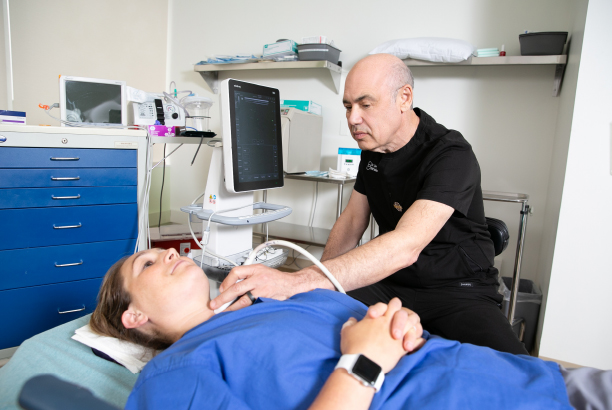STELLA
A Beacon Of Hope For Mental Health

In the bustling heart of Manhattan lies a sanctuary of solace and healing known as Stella. Nestled within the fabric of the city, this facility stands as a beacon of hope for those grappling with the complexities of mental health challenges. With its innovative approach and unwavering commitment to holistic care, Stella has emerged as a transformative force in the landscape of mental health services.
Stella is more than just a treatment facility; it is a sanctuary designed to nurture the mind, body, and spirit. From the moment one steps through its doors, they are embraced in an atmosphere of compassion and inclusivity. Every aspect of this trauma-informed environment is carefully curated to cultivate serenity and solace, with soothing hues, lush greenery, and thoughtfully chosen furnishings embracing visitors with warmth and comfort.

“Stella’s mission goes far beyond building a network of trusted clinics,” said co-founder and Chief Strategy Officer, Michael Gershenzon. “We’re setting a new standard for care that provides personalized trauma-informed care that combines cutting-edge biological interventions with seamless psychological support.”
What sets Stella apart is its holistic approach to mental health care. Recognizing that mental well-being is intricately connected to physical health, Stella offers a comprehensive range of services tailored to address everyone’s unique needs. Treatment by Stella is just one aspect of the healing journey. By pairing biological interventions with psychological interventions, the result can be life-changing.
Stella’s treatment protocols are created to meet a person’s needs before, during, and after treatment, which is the new model of trauma treatment. It’s what people in need of relief deserve.
Moreover, Stella has been—and always will be—dedicated to fostering medical innovation and knowledge-sharing within the mental health community. Through partnerships with leading researchers, advocacy organizations, and other institutions, the company remains at the forefront of advancements in the field by furthering medical literature, breaking down societal stigmas and setting new standards for care that prioritizes patient outcomes.
MEASURING SUCCESS BY
LIVES CHANGED
Central to Stella’s philosophy is the belief that those suffering from severe post-traumatic stress injury, anxiety and depression deserve the best care that modern neuroscience and psychological expertise can deliver. In a world where stigma and shame are a barrier to seeking care, Stella offers a safe and empathetic space where individuals can find hope again. The clinicians at Stella Center New York are not just experts in their field; they are compassionate allies who walk alongside their clients on the journey toward healing.
One of the hallmarks of Stella’s approach is its emphasis on evidence-based care. Rather than adopting a one-size-fits-all mentality, medical and mental health experts collaborate with clients to develop personalized treatment plans based on individuals desired outcomes. “When accounting for medical, biological, psychological, and social factors, we can provide options that give each person the best chance possible at feeling better long-term,” adds Amanda Vogel, Psychiatric Nurse Practitioner at Stella New York.
Whether it’s resetting an overactive nervous systems, rebuilding neuron pathways, creating healthier habits or learning how to navigate life in a calm body, clients are empowered to take ownership of their mental health journey and make meaningful changes in their lives following treatment. As Stella progresses and expands, its dedication to excellence and compassion remains steadfast. In a time where the demand for mental health support is increasing, Stella serves as a symbol of hope, extending a helping hand to those seeking assistance and guiding them towards healing, well-being and wholeness.
We recently visited the experts at Stella New York’s office to find out more about their innovative treatments.
Who is Stella?
Stella is an Interventional Psychiatry practice focused on providing patients with the most effective mental health protocols out there for anxiety, depression, and PTSI (Post-Traumatic Stress Injury).
Stella understands the complexities of mental health challenges and the importance of finding treatments that work. Unlike traditional approaches that often rely solely on medication or therapy alone, Stella combines advanced neuroscience with holistic care, aiming for a comprehensive solution tailored to each individual needs. Cutting-edge biological interventions include the Dual Sympathetic Reset Stellate Ganglion Block (DSR SGB), Ketamine Infusion Therapy, and Transcranial Magnetic Stimulation (TMS) —with targeted, short term psychological support following treatment.
Instead of just managing your symptoms, Stella targets and treats the physical source of the symptoms with the aim to eliminate the needless suffering caused by debilitating symptoms and provide long-awaited healing.

What types of mental health conditions and symptoms does Stella target?
Stella is designed to address a wide range of mental health symptoms that are associated with anxiety, trauma, depression, and post-traumatic stress injury. Each of these conditions have symptoms that are commonly linked to one another, making it difficult for some to articulate or identify what they’re experiencing. That’s why Stella›s team of board-certified physicians, advanced practice providers and psychologists will inquire, listen, discern medical contraindications and determine the most suitable care journey for each person.
Trauma is a human universal truth and each person›s experience is unique. The most common symptoms patients report are issues sleeping, anxiety, panic attacks, irritability, problems connecting with loved ones, loss of joy or interest in things they used to love and more.
PTSD and PTSI
PTSD became a mental health diagnosis in 1980 when the American Psychiatric Association (APA) added the term to the third edition of its Diagnostic and Statistical Manual of Mental Disorders (DSM-III). It is a serious mental health condition that can develop after a person experiences or witnesses a traumatic event or microdoses of stress over a period. However, several trauma experts and military groups recognize that the current term does not accurately reflect the nature of the condition as an injury to the brain vs. a disorder and sadly the stigma of a mental disorder keeps many people from seeking help.
PTSI, deemed a more accurate term, recognizes that the condition is not a disorder, but rather an injury that can be treated as such. No matter how big or small trauma is perceived to be, it can create a cascade of biological changes that produce an overactivation of the sympathetic nervous system. While invisible to the naked eye, the changes are measurable and can be seen on an advanced brain scan. PTSI can be treated by a doctor.
What is the Dual Sympathetic Reset?
The Dual Sympathetic Reset treatment is used to help people get relief from symptoms of anxiety and post-traumatic stress. DSR is an advanced SGB protocol where a local anesthetic is injected next to a collection of the sympathetic nerves in two separate places. This collection of nerves is associated with the sympathetic nervous system which regulates many involuntary functions like heart rate, blood pressure and sweating.
DSR temporarily numbs an area that transmits norepinephrine, also known as adrenaline, to the brain. While the area is temporarily numbed, not only can the transmission of adrenaline decrease, but also begin to heal itself by “pruning” extra nerve endings.
This allows for the body to return to a state of calm, similar to turning a computer off and back on again.

How does Ketamine Therapy work?
Stella’s Ketamine Treatment Sessions are guided by their responsible innovation approach. Patients are directly medically monitored during their treatments, which is administered intravenously or intranasally, for controlled and monitored dosing and care.
Ketamine can repair damage caused by cortisol and other long-term stress hormones that affect the brain›s communication system. Treatment can help neurons commute with each other along with creating new pathways, which support mood, thought patterns, and cognition.
How does Stella integrate into traditional mental health treatments?
Stella works in collaboration with traditional behavioral health services by providing an additional avenue for holistic care. Biological treatments work alongside, and in support of, long-term therapy, mindfulness, medication, or other interventions, depending on the individual›s needs and preferences.
Following biological treatment and short-term integration therapy, many people find more success in therapy after treatment because they show up to appointments with a clear mind and calm body.
In collaboration with traditional behavioral health services, Stella helps patients find the right mix of therapies, biological treatments, mindfulness exercises, supplement recommendations and so on to set people up for long term success.
Stella is dedicated to innovating like lives depend on it, because they do. Since launching four years ago, the company has been dedicated to revolutionizing the approach to mental health care, positioning itself as the premier destination for individuals seeking holistic, transformative, and comprehensive care. Led by a team of board-certified physicians and experts in both medical and mental health fields, Stella has provided care for over 8,500 patients. With +20 locations spanning across the United States, as well as in Israel and Australia, Stella also has six Centers of Excellence in Westmont (IL), Irvine (CA), Washington D.C., New York City (NY), San Diego (CA), and Boston (MA). For further details about Stella,
please visit www.stellacenter.com





